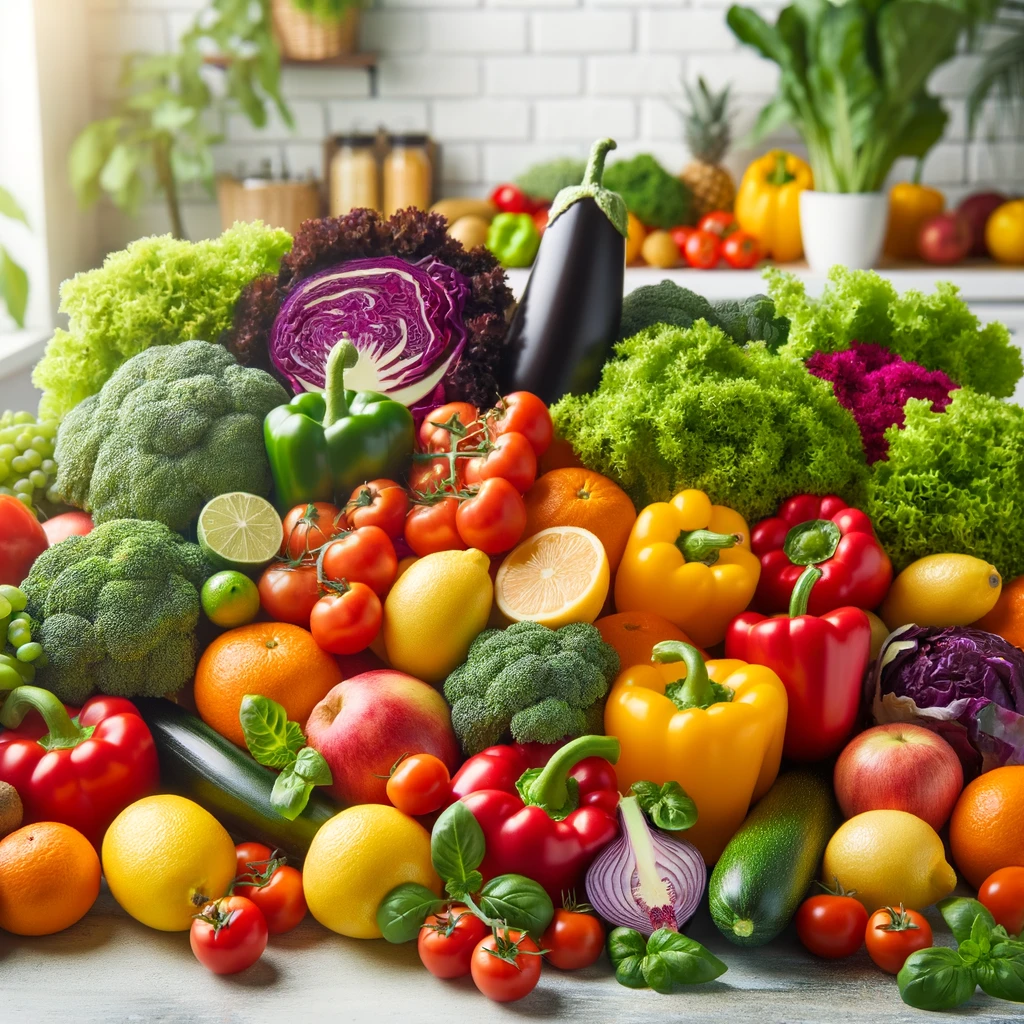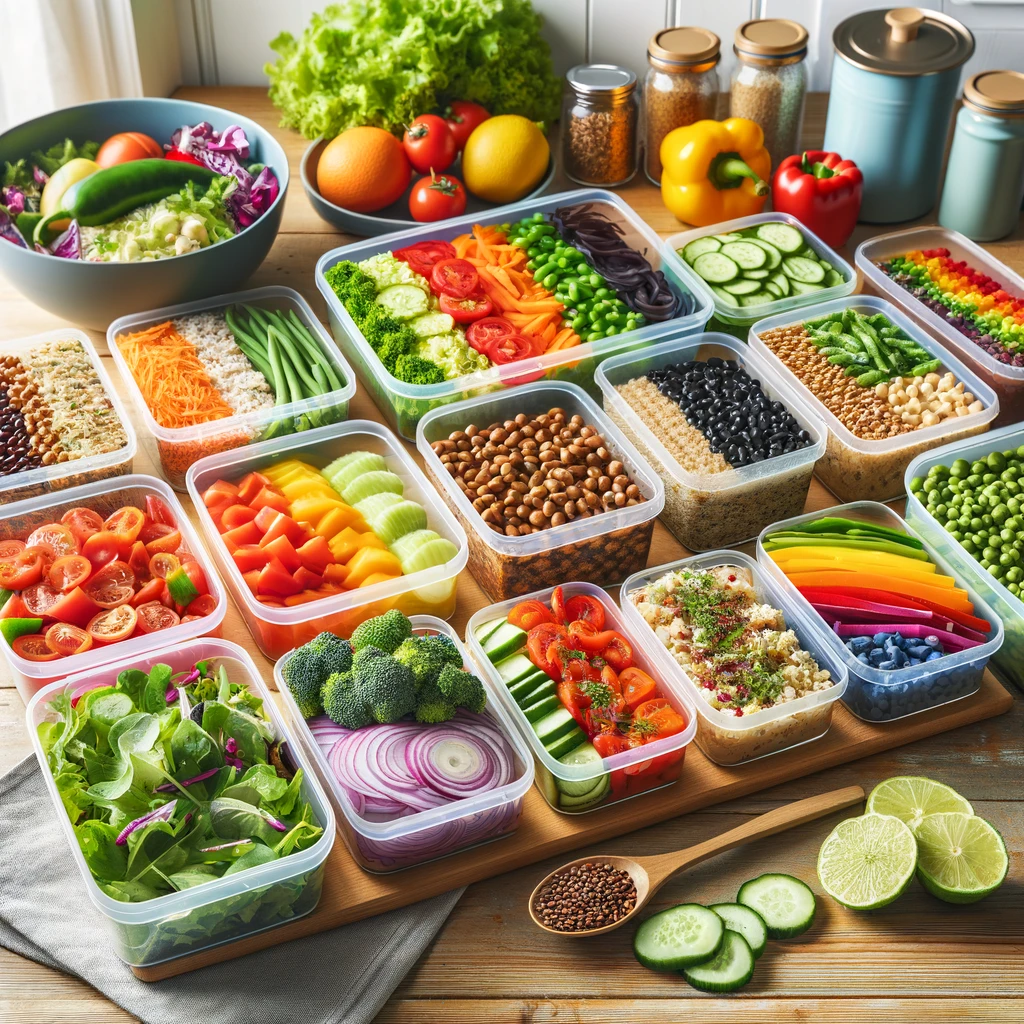Are you considering a switch to a plant-based diet but don’t know where to start? You’re not alone. Many people are drawn to plant-based eating for its health benefits, environmental impact, or ethical considerations. This comprehensive guide will walk you through everything you need to know about a plant-based diet for beginners, from understanding the basics to overcoming common challenges.

What is a Plant-Based Diet?
Before we dive into the details, let’s clarify what we mean by a “plant-based diet.” At its core, a plant-based diet focuses primarily on foods derived from plants, including:
- Fruits and vegetables
- Whole grains
- Legumes and beans
- Nuts and seeds
- Plant-based oils
While it doesn’t necessarily eliminate animal products entirely, a plant-based diet encourages you to get most of your nutrients from plant sources. This approach offers flexibility, making it accessible to those who aren’t ready to completely give up animal products but want to significantly reduce their consumption.
Why Choose a Plant-Based Diet?
Adopting a plant-based diet isn’t just a culinary change but a lifestyle transformation that can significantly boost your health. Studies have shown that eating a diet high in plant foods can decrease the risk of chronic diseases such as heart disease, diabetes, and certain cancers. Plant-based foods are rich in fiber, vitamins, and minerals that help you feel energized and satiated. Plus, they’re fantastic for maintaining a healthy weight.
Plant-Based vs. Vegan: Understanding the Difference
It’s important to distinguish between a plant-based diet and a vegan diet, as these terms are often used interchangeably but have distinct differences:
Plant-Based Diet:
- Emphasizes plant foods but may include small amounts of animal products
- The focus is primarily on health and nutrition
- Allows for flexibility and personal interpretation
Vegan Diet:
- Completely excludes all animal products
- Often motivated by ethical or environmental reasons in addition to health
- Extends beyond diet to lifestyle choices (e.g., avoiding leather, products tested on animals)
Understanding this distinction can help you choose the approach that best aligns with your goals and values.
Why Choose a Plant-Based Diet?
Switching to a plant-based diet for beginners isn’t just a trend – it’s a lifestyle change backed by science. Here are some compelling reasons to consider making the switch:
Heart Health
Plant-based diets are associated with lower cholesterol levels and reduced risk of heart disease.
Weight Management
Plant-based diets are typically high in fiber and low in calorie density, making them excellent for weight management.
Improved Digestion
The abundance of fiber in plant-based diets promotes a healthy gut microbiome. A diverse and healthy gut microbiome diet has been linked to improved digestion, stronger immune function, and even better mental health.
Increased Energy
Many people report feeling more energetic after transitioning to a plant-based diet. This could be due to the higher intake of nutrient-dense foods and the elimination of processed foods that are often part of the transition.
Reduced Risk of Certain Cancers
Research has shown that plant-based diets may reduce the risk of certain types of cancer. For example, a study published in the International Journal of Cancer found that vegetarian diets were associated with a 22% lower risk of colorectal cancer compared to non-vegetarian diets.

Getting Started: Your Plant-Based Journey Begins Here
Now that we’ve covered the “why,” let’s dive into the “how.” Starting a plant-based diet for beginners doesn’t have to be overwhelming. Here’s a step-by-step guide to help you begin your journey:
1. Start Gradually
One of the biggest mistakes people make when transitioning to a plant-based diet is trying to change everything overnight. This approach can be overwhelming and unsustainable. Instead, try these steps:
- Begin with one plant-based meal per day
- Gradually increase plant-based meals over time
- Experiment with “Meatless Mondays” or similar concepts
- Replace one animal-based ingredient with a plant-based alternative in your favorite recipes
Remember, every plant-based meal is a step in the right direction. Celebrate these small victories!
2. Stock Your Pantry
Having the right ingredients on hand makes plant-based cooking easier and more enjoyable. Here’s a list of staples to get you started:
- Whole grains: quinoa, brown rice, oats, barley, whole grain pasta
- Legumes: lentils, chickpeas, black beans, kidney beans
- Nuts and seeds: almonds, walnuts, chia seeds, flaxseeds, pumpkin seeds
- Plant-based milk alternatives: almond milk, oat milk, soy milk
- Nutritional yeast (great for adding a cheesy flavor)
- Whole grain flours for baking
- Dried herbs and spices for flavoring
- Vegetable broth for cooking
3. Learn Plant-Based Cooking Techniques
Exploring new cooking methods can make plant-based meals exciting and delicious. Try these techniques:
- Roasting vegetables to bring out their natural sweetness
- Using a food processor to create veggie-based sauces and dips
- Experimenting with meat alternatives like tofu, tempeh, or seitan
- Mastering the art of seasoning to enhance flavors
- Learning to make plant-based versions of your favorite dishes
Take a look at our top 10 best plant-based diet books to learn cooking tips and recipes or follow plant-based recipe blogs for inspiration.
4. Focus on Whole Foods
While there are many processed plant-based alternatives available, focusing on whole foods will provide the most nutritional benefits. Prioritize:
- Fresh fruits and vegetables
- Whole grains
- Legumes
- Nuts and seeds
These foods are packed with vitamins, minerals, antioxidants, and fiber that are essential for optimal health.
5. Plan Your Meals
Meal planning can be a game-changer when transitioning to a plant-based diet. It helps ensure you’re getting a variety of nutrients and prevents the “what’s for dinner?” stress. Here are some tips:
- Plan your meals for the week ahead
- Prep ingredients in advance
- Batch cook staples like grains and legumes
- Keep quick and easy plant-based snacks on hand
6. Educate Yourself
Knowledge is power when it comes to nutrition. Take some time to learn about plant-based nutrition, including:
- Plant-based protein sources
- Essential nutrients and where to find them in plant foods
- The importance of variety in your diet
- How to read nutrition labels
Consider consulting with a registered dietitian who specializes in plant-based nutrition for personalized advice.
Overcoming Common Challenges
Starting a plant-based diet for beginners can bring its challenges, but here are solutions to common concerns:
- Dietary Variety: Regularly introduce new plants to your diet to keep it exciting. Experiment with different recipes and cuisines to find what you enjoy.
- Nutrient Sufficiency: Focus on getting iron, calcium, and B12 from fortified foods or all-in-one vegan supplements if needed. Including a wide range of fruits, vegetables, and legumes can help cover most nutritional bases.
- Social Dining: Choose dining spots with plant-based options or preview menus online when planning social meals. Don’t hesitate to suggest restaurants that cater to your dietary preferences.
Overcoming Challenges
As you transition to a plant-based diet, you might face some challenges. Here’s how to overcome them:
1. Ensuring Adequate Nutrition
Concern:
Getting enough protein, iron, and B12
Solution:
- Incorporate protein-rich plant foods like lentils, chickpeas, quinoa, and tofu
- Pair iron-rich foods (like spinach and fortified cereals) with vitamin C sources for better absorption
- Consider B12 supplements or fortified foods, as B12 is primarily found in animal products
- Consult with a healthcare provider or registered dietitian to ensure you’re meeting all your nutritional needs
2. Dining Out
Concern:
Limited options at restaurants
Solution:
- Research menus in advance
- Look for cuisines that naturally offer plant-based options (e.g., Indian, Mediterranean, Middle Eastern)
- Don’t hesitate to ask for modifications or off-menu options
- Use apps like HappyCow to find vegan-friendly restaurants in your area
3. Social Situations
Concern:
Feeling left out at gatherings or facing pressure from friends and family
Solution:
- Offer to bring a plant-based dish to share at gatherings
- Communicate your dietary preferences to hosts in advance
- Focus on the social aspect rather than just the food
- Be prepared to explain your choices positively, if asked
- Remember that your dietary choices are personal and you don’t need to justify them to others
4. Dealing with Cravings
Concern:
Missing favorite non-plant-based foods
Solution:
- Explore plant-based versions of your favorite dishes
- Give your taste buds time to adjust – cravings often decrease over time
- Focus on what you’re adding to your diet, not what you’re removing
- Allow yourself occasional treats if you’re not strictly vegan
Meal Ideas to Get You Started
Jumpstart your plant-based diet for beginners with these simple meal ideas:
- Breakfast:
- Overnight oats with berries, nuts, and a dollop of almond butter
- Tofu scramble with vegetables and whole grain toast
- Smoothie bowl topped with granola and fresh fruit
- Lunch:
- Chickpea salad sandwich with avocado on whole grain bread
- Lentil soup with a side salad
- Buddha bowl with quinoa, roasted vegetables, and tahini dressing
- Dinner:
- Lentil and vegetable curry over brown rice
- Whole grain pasta with homemade tomato sauce and roasted vegetables
- Stuffed bell peppers with a mixture of quinoa, black beans, and corn
- Snacks:
- Apple slices with almond butter
- Homemade trail mix with nuts, seeds, and dried fruit
- Carrot sticks with hummus
- Roasted chickpeas seasoned with your favorite spices
- See more easy vegan snack ideas

Conclusion: Embracing the Plant-Based Lifestyle
Transitioning to a plant-based diet is a journey, not a destination. Be patient with yourself, stay curious, and enjoy exploring new foods and flavors. Remember, every plant-based meal is a step towards better health and a more sustainable planet.
As you embark on this journey, keep these key points in mind:
- Start gradually and celebrate small victories
- Focus on whole, nutrient-dense plant foods
- Educate yourself about plant-based nutrition
- Be prepared for challenges and have strategies to overcome them
- Experiment with new recipes and cooking techniques
- Remember the positive impact you’re making on your health and the environment
Are you ready to start your plant-based adventure? What aspect of plant-based eating are you most excited about? Share your thoughts in the comments below!


Leave a Reply